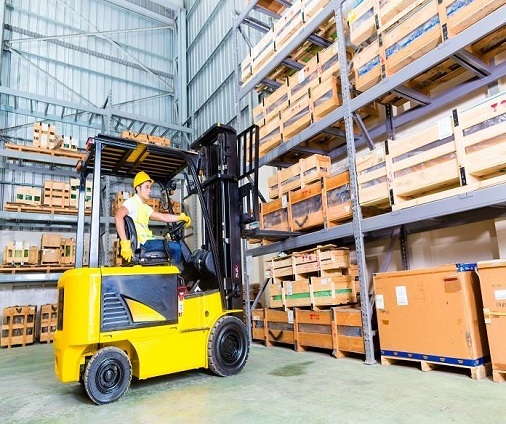Elevating Safety: The Crucial Importance of Forklift Operator Training in Ontario Workplaces:
Ontario’s workplaces are bustling with diverse industries, from manufacturing and warehousing to construction and logistics. In these dynamic environments, forklifts play a crucial role in material handling and productivity. However, their operation comes with inherent risks that can lead to accidents, injuries, and even fatalities. To mitigate these risks and ensure the safety of employees, the Ontario Occupational Health and Safety Act (OHSA) mandates comprehensive forklift operator training. This article delves into the importance of forklift operator training in Ontario workplaces, emphasizing its role in preventing accidents, ensuring regulatory compliance, improving efficiency, and promoting a culture of safety.
Safety First: Preventing Accidents and Injuries
Forklifts are powerful machines designed to lift, transport, and stack heavy loads. When operated improperly or by untrained individuals, they pose significant dangers in the workplace. Forklift operator training in Ontario is essential to prevent accidents and injuries for several reasons:
- Technical Expertise: Forklift training programs provide operators with in-depth knowledge of forklift mechanics, controls, and safe operating practices. This expertise is critical to avoid accidents related to equipment misuse.
- Load Handling Skills: Proper load handling techniques, including load stability assessment and securement, are taught during training. This reduces the risk of load-related accidents such as spills and falling objects.
- Hazard Awareness: Forklift operators are trained to identify workplace hazards, including uneven surfaces, congested areas, and pedestrians. This awareness helps prevent accidents by enabling operators to take preemptive measures.
- Safe Maneuvering: Forklift training includes instruction on safe maneuvering, turning, and backing up, reducing the likelihood of collisions, tip-overs, and accidents in tight spaces.
- Emergency Response: Operators are trained to respond effectively in emergency situations, such as brake failure or sudden obstacles. This training can prevent accidents from escalating into disasters.
Regulatory Compliance Under OHSA
The Ontario Occupational Health and Safety Act (OHSA) places the responsibility of ensuring workplace safety squarely on employers. Compliance with OHSA regulations is not optional; it is a legal requirement. Forklift operator training is a key component of OHSA compliance in Ontario workplaces:
- Section 25(2)(h): OHSA Section 25(2)(h) stipulates that employers must “take every precaution reasonable in the circumstances for the protection of a worker.” This includes providing proper training and supervision to forklift operators to prevent accidents and injuries.
- Section 51(2): OHSA Section 51(2) mandates that operators of “powered lift trucks” (forklifts) be competent and adequately trained. Failure to comply can result in legal penalties, fines, and potential legal liabilities for employers.
- Certification: OHSA requires that forklift operators be certified by a qualified trainer. Certification serves as evidence that an operator has completed the necessary training and is competent to operate a forklift safely.
- Regular Evaluation: OHSA also mandates that operators undergo periodic evaluation to ensure ongoing competence. Employers are responsible for ensuring that operators remain skilled and updated in their knowledge and abilities.
- Maintenance and Inspection: OHSA regulations require that forklifts be maintained and inspected regularly to ensure they are in safe working condition. Trained operators can play a role in identifying and reporting equipment issues promptly.
Failure to comply with OHSA regulations not only leads to legal consequences but also jeopardizes the safety of workers and the overall well-being of Ontario workplaces.
Improving Efficiency and Productivity
Effective forklift operator training does more than just ensure safety; it also enhances workplace efficiency and productivity. Well-trained forklift operators are equipped with the skills needed to perform their tasks efficiently and effectively:
- Load Handling Efficiency: Operators who have received proper training can handle loads more efficiently, reducing the time and effort required to move materials and goods.
- Optimized Workflows: Forklift operators can contribute to optimized workflows by understanding how to best utilize forklifts in materials handling processes.
- Reduced Downtime: Accidents and equipment damage often result in downtime. Trained operators are less likely to cause accidents, reducing disruptions to work schedules and productivity.
- Improved Inventory Management: Forklifts are essential for inventory management in warehouses and distribution centers. Skilled operators can ensure accurate and efficient inventory handling, reducing errors and losses.
- Minimized Equipment Damage: Proper forklift operation reduces the risk of equipment damage, lowering maintenance costs and preventing costly repairs or replacements.
Promoting a Culture of Safety
A culture of safety is not solely the responsibility of employers; it is a collective effort that involves all employees, including forklift operators. Forklift operator training plays a pivotal role in promoting this culture:
- Peer Influence: Trained forklift operators can positively influence their colleagues by demonstrating safe operating practices and adhering to safety protocols.
- Safety Committees: In some workplaces, forklift operators participate in safety committees, contributing their expertise to improve overall safety standards.
- Reporting Hazards: Operators are more likely to report hazards and unsafe conditions when they have been trained to do so. Early reporting can lead to timely hazard mitigation.
- Continuous Learning: Forklift operator training is not a one-time event. Operators must undergo periodic training updates to stay informed about the latest safety guidelines and best practices.
- Responsibility and Accountability: Training instills a sense of responsibility and accountability in operators, making them aware of their role in maintaining a safe workplace.
Choosing the Right Training Program
Selecting the right forklift operator training program is crucial for ensuring its effectiveness. Ontario workplaces have several options to consider:
- Qualified Trainers: Choose training programs delivered by qualified trainers with expertise in forklift operation and safety.
- Comprehensive Curriculum: Ensure that the training program covers all aspects of forklift operation, including equipment inspection, load handling, maneuvering, and emergency response.
- Hands-On Practice: Practical, hands-on training is essential to reinforce theoretical knowledge. Look for programs that provide ample opportunity for operators to practice in a controlled environment.
- Customization: Tailor the training program to suit the specific needs and hazards of your workplace. Customization ensures that operators are trained in scenarios they are likely to encounter.
- Certification: Verify that the training program includes certification, as proof of completion is required under OHSA regulations.
Forklift operator training is not just a legal requirement in Ontario workplaces; it is a fundamental step towards ensuring the safety, efficiency, and productivity of employees. By preventing accidents, achieving regulatory compliance, improving efficiency, and fostering a culture of safety, forklift operator training contributes to the well-being of both workers and organizations. Investing in comprehensive forklift operator training is an investment in the safety and success of Ontario workplaces, where employees can carry out their tasks with confidence and competence.
Click here to book an onsite Forklift operator training course at your workplace.
Click here for OHSA Forklift operator training course requirements.


